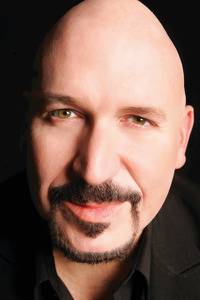I remember everything—everything—as vividly as if it was happening to me right now.
In those first horrific hours on that most horrific day when the mighty Twin Towers fell in lower Manhattan and our country was forever changed, New York City Mayor Rudy Giuliani was presiding over yet another news conference. And I was listening. Giuliani told the assembled media—and a transfixed world—that family members of missing World Trade Center employees should check in at the US Armory building at Lexington Avenue and 26th Street. Oh my. I lived at Lexington Avenue and 26th Street. The chaos was coming to my doorstep.
Within minutes, literally thousands of truly hysterical and panic-stricken people descended upon my next-door neighbor—the usually stoically silent Armory—and the desperate relatives were joined by the media, the curious, the young. I was a virtual prisoner in my own home. But I had Mayor Giuliani telling me—showing me—there was somebody minding the store.
My relationship with Rudy Giuliani was a complicated one. When he first came into office with so much boastful bluster about “doing something” about NYC’s massive homeless situation and, almost instantly, he did indeed do something, my ACLU-leaning friends took a look around and dared not ask the question we were all wondering: “Where did the homeless go?” And for thousands of us, the sad fact was we were just glad they weren’t sleeping at our doorsteps any longer. As Giuliani garnered praise from many disparate (and surprising) circles for his impressive litany of “quality of life” accomplishments, a darker sense of the man began to emerge. His no-questions-asked, blinding loyalty to any and all police activity was more than disturbing. Whatever the NYPD did—from indefensibly firing 41 shots at an unarmed Amadou Diallo, killing him, to sexually assaulting Abner Louima with a bathroom plunger—the men in blue could always count on Giuliani sticking by them: “The police were just doing their job,” the mayor would say.
Before that fateful September day, as the countdown was on for Giuliani’s replacement, I was planning on attending a massive rally near City Hall protesting the mayor for his shocking defense of the unimaginable acts by police officers. A crisis at the magazine company I worked for effectively thwarted my plans that day, but my anger and outrage toward Rudy Giuliani were coursing through my veins. Oh yes, it was time for him to go.
Then, September 11.
From those who weren’t in Manhattan, I still hear the events of that painful, endless day described in cinematic terms: “surreal,” “like being in a movie,” “a real-life blockbuster.” From someone who was there, let me tell you something, it wasn’t any of those things. It was scary. It was gut wrenching. It was life altering. I won’t get into too many details here but suffice to say that I had a dozen co-workers with me in my home as we witnessed the towers fall and with them the lives of our colleague’s parents, both of whom worked above the 100th floor of the North Tower. Rage, grief and fear enveloped my living room instantly. We were literally holding onto each other in disbelief.
Mayor Giuliani was Johnny-on-the-spot that day. Everywhere the cameras went, he seemed to be there, showing his constituents that he was getting the answers we so desperately needed. I hated to admit it, but the mayor helped me that day. The man I wanted out of office for his cavalier attitude and my-way-or-the-highway mentality was now expertly reassuring this cynical New Yorker with his cavalier attitude and not-on-my-watch swagger. Boy, did I feel like a hypocrite.
I’ve lived in large American cities with major league mayors: New York and I shared Ed Koch, Giuliani, David Dinkins and Michael Bloomberg; San Francisco had Willie Brown and Gavin Newsom; Los Angeles had Antonio Villaraigosa; Miami had Xavier Suárez and New Orleans had Dutch Morial. It seems that I really do like living in world-class cities with larger-than-life personalities leading them.
Now, Oscar Goodman’s Las Vegas. Oh, boy. Goodman’s twelve-year reign over this city is stuff of legend—I’ve never seen a mayor more enamored with atmospherics (showgirls!) than this one—but as we decide our next symbolic civic leader, I’m taking a good, hard look at the leading candidate, Oscar’s wife, Carolyn.
Here’s my hope: Carolyn Goodman is our late-in-life, Las Vegas version of Hillary Clinton; a whip-smart, no-nonsense, can-do powerhouse who stands in contrast to her husband’s, um, effervescence. What we need in the job of mayor of Vegas right now is an exceptional salesperson to attract new business and I think we may have found a pretty good one in Goodman 2.0.
As the 10th anniversary of September 11 draws near, I know I’ll relive that terrible day over and over in my head. How could I not? And embedded in those memories was my realization that I genuinely needed Mayor Giuliani that day to tell me—to promise me—that everything was going to be OK. And he did. Damn it, he really did. And that’s what a major league mayor does. Batter up, Carolyn. It’s game time.
